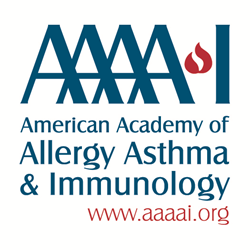Results from Detroit Birth Cohort First Revealed at AAAAI Annual Meeting
(Press Release)
Houston, TX – A number of studies related to the Wayne County Health Environment Allergy and Asthma Longitudinal Study in Detroit (WHEALS) were released February 21 at the American Academy of Allergy, Asthma & Immunology (AAAAI) Annual Meeting.
Researchers can confirm our microbiome, or gut bacteria, is related to establishment of our immune system – especially in infants. Moreover, breastfeeding may influence the number of types of bacterial and their diversity in the early-life gut microbiome.
“The human microbiome is the collection of hundreds to thousands of distinct microbial species that reside in communities both in and on the human body. The advent of novel technologies that allow us to detect these microbes without culturing them has led to the discovery that the healthy human body hosts microbial communities of distinct composition at various sites across the body. This vast microbial ecosystem confers critical functions to the human host and, based on mouse models, appears essential for appropriate physiological and immune development,” according to Susan V. Lynch, co-author and WHEALS investigator.
A total of 298 racially diverse infants from metropolitan Detroit participated in the WHEALS studies. Researchers analyzed their stool profiles, blood samples and parent surveys/reports.
One study, the first of its kind in humans, revealed an association between gut bacteria and regulatory T-cells. These cells keep the immune system in check and prevent the development of autoimmune diseases like allergy and asthma. Practically speaking, researchers found breastfeeding appears to modify the gut microbiome by enriching bacteria in the gut that are positively associated with regulatory T-cells and by reducing the burden of bacteria that are negatively associated with this important group of T-cells.
“Breastfeeding has, in the past, been shown to promote groups of bacteria such as Bifidobacteria which are traditionally considered beneficial to human health. This study expands these findings to identify organisms that are both promoted by breast-feeding, and associated with induction of a specific group of T-cells that are critical to preventing allergic responses,” Lynch explained.
For example, another study observed reduced presence of Lachnospiracaea bacteria, which likely increases the risks of childhood pet allergies, in the gut microbiome of infants who were breastfed. Another study identified completely distinct gut bacteria in asthmatic children with nocturnal symptoms versus those without nocturnal symptoms, suggesting distinct early-life pathways unique to asthma types.
“Our studies demonstrate that several factors such as caesarian section, early life environmental microbial exposures and neonatal mode of nutrition, amongst others, play a key role in shaping the infant gut microbiome, immune development and susceptibility to allergic disease development,” said Lynch.
For more information on allergies, asthma, or the AAAAI Annual Meeting please visit the AAAAI website.
###



Comments (0)